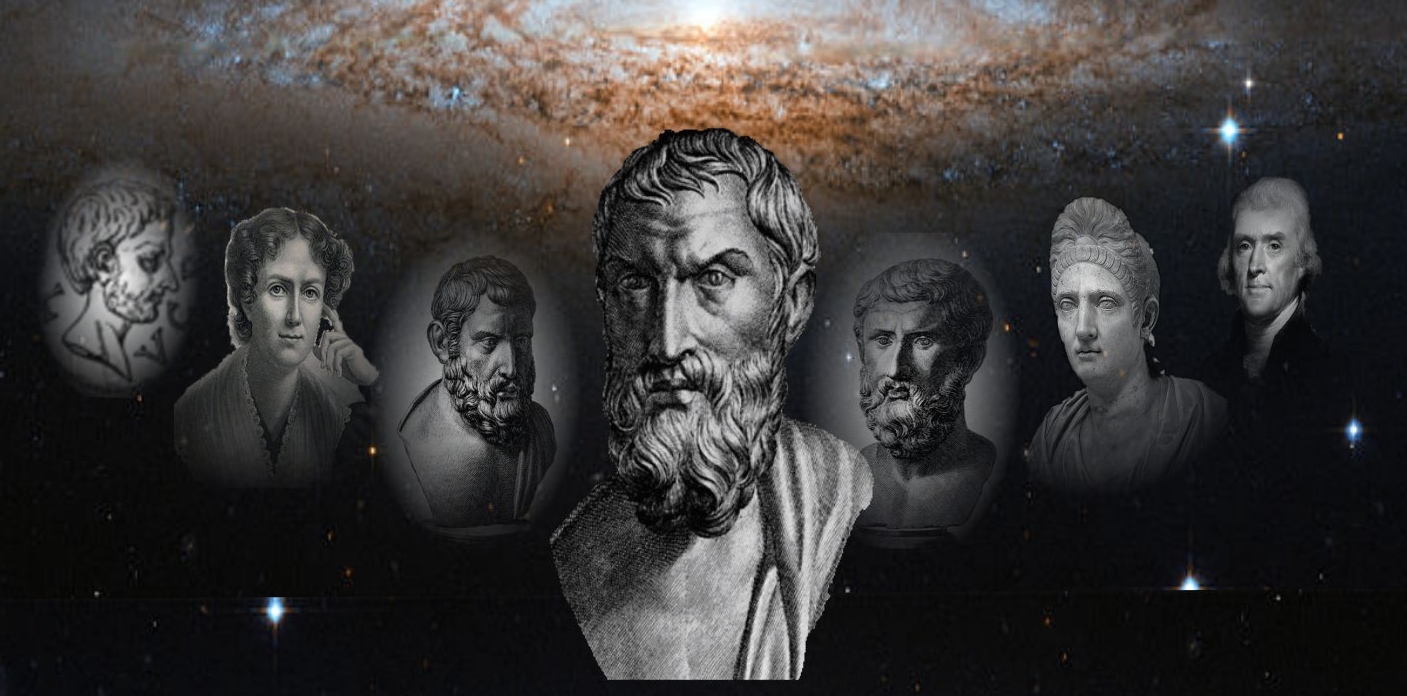“Contributions of the Herculanean Papyri To Our Knowledge of Epicurean Logic”
Here is a good summary of the major points made by Phillip H. De Lacy in his article from 1937 as it appeared in the “Transactions and Proceedings of the American Philological Association,” Volume 68. Note that the first seven items are areas, stated in Epicurean terms, where Epicureans largely agreed with Aristotle, and differed from other philosophers. The list serves as a good point of reference for Epicurean views, however. The Epicureans differences with other philosophers are highlighted in the notes that follow, especially in regard to the Epicurean rejection of artificial formulas which Stoics and Aristotelians and other philosophers built on top of these fundamentals. From page 320 and following:
(1) All knowledge about reality must be derived from the perception of objects. This statement is in accord with the view that the concrete object is the only primary substance. *All knowledge of universals must be derived from the observation of the qualities of particulars.* (my emphasis)
(2) Truth lies in the correspondence of propositions with concrete facts.
(3) Propositions about the future are neither true nor false.
(4) Perceptions are always, or nearly always, true. Falsity lies in judgment. (My note – this is where Dewitt says “true” in is meant in the sense of “reported truly” like a “witness who may not know all the facts but is reporting honestly what he observed.”)
(5) Thought is psychologically derived from perception through imagination and memory.
(6) Language is conventional in words and structure, but the meanings of words are the same for all men, because they refer to elements common to the experience of all men.
(7) Generic terms are extensional in reference, for there is no single ontological entity underlying them to which they refer.
And other important observations by De Lacy:
“An exclusively formal analysis of propositions, [the Epicureans] argued, is impossible, for language is meaningful only when related to the world of sense experience through the medium of empirically derived προλήψεις. The whole content and structure of thought are directly referable to sense experience. Hence all attempts at purely formal analysis, including definition and division, presuppose an inductive logic.” [Here, Dewitt would argue that what De Lacey refers to here as “sense experience” should be thought of as referring to experiences from all three categories of the canon. DeWitt argues that conceptions are formed in the mind, and then used later in the mind, in a process where data from anticipations / προλήψεις, are combined with data from the five senses and from the pleasure/pain mechanism. Further, DeWitt would not say that the principles by which the anticipations operate are empirically derived any more than the principles by which the eyes operate are empirically derived. What the eyes see, and what the anticipations report, is properly though of as empirically derived data. But the principles by which the faculty of sight and the faculty of anticipations *operate* do not stem from experience, but are innate in our genetics at birth.]
“The reconstruction of Epicurean logic made possible by the Herculaneaum papyri gives new meaning to all parts of Epicurean philosophy.”
“In establishing the naturre of ultimate value, the Epicureans appeal not to religious sanction, moral law, or any other non-empirical legislative principle, but to the actual concrete experience of men.”
“Only through careful and extensive observation, joined with a memory of similarities and differences and an empirical knowledge of consequences, is one able to avoid all the things which do not lead to happiness.”
“To the history of logic the Epicureans contributed the first serious attempt to formulate an entirely empirical logic. It was indeed unfortunate that this logic had so little influence on subsequent philosophy that its true nature was almost unknown until the recovery of the Epicurean works from Herculaneum.”
<< On that last point, we’ll work to change that, won’t we!

